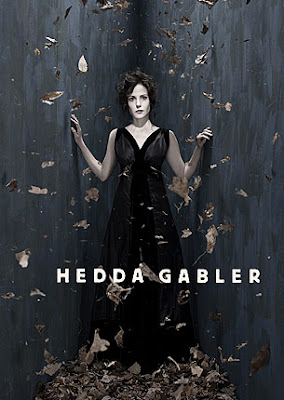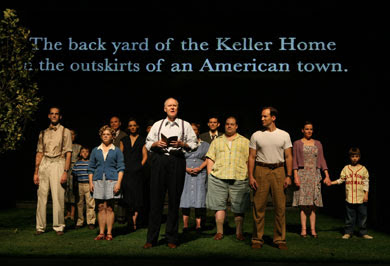 "Hedda Gabler" presented by Roundabout Theatre Company at the American Airlines Theatre, January 8, 2009
"Hedda Gabler" presented by Roundabout Theatre Company at the American Airlines Theatre, January 8, 2009Ibsen's great heroine...in a new adaptation that is both literal and anachronistic at the same time.
Here's another one I had really high hopes for, although I'll admit to having a few feelings of wariness about it. I'm a big Mary Louise Parker fan - "Weeds"? Love her, all the way back to "Longtime Companion." "Proof" blew me away - what an amazing tour-de-force performance!
Then I hear that the Roundabout is producing "Hedda Gabler" which I found a bit curious after the fairly recent and most excellent production featuring Cate Blanchett at BAM.
Disclaimer: I did see a fairly early preview, so there may be some issues that resolve themselves before opening.
Director Ian Rickson, coming off a lovely (if partly miscast) "Seagull" starts out with some eerie mood music and the first of several bizarrre "furniture ballets" which never really seem to indicate anything about the play or move the story along. The static and irregular staging became difficult to follow, particularly in a slow passage before Hedda shoves Lovborg's hand up her dress as she shoves her tongue down his throat. If that sentence sounds jarring, imagine that same response when you see it performed.
And don't get me started on fumbling lines.
Ms. Parker fully commits to her role, but here our Hedda is so disdainful and contemptuous of everyone around her, it's hard to imagine what has earned her such reverence and respect. She insults, dismisses, stalks and plots with total disregard for those around her. It isn't until Act II that she even touches her husband with anything nearing tenderness. Michael Cerveris' Jorgen Tesman bows and scrapes to the point of humiliation - not one of his finer performances.
Christopher Shinn's adaptation comes up short on subtlety and long on sarcasm. I think others have done better with this material. Hildegard Bechtler's tall and heavy set creates more viewing problems than it solves, moving some action so far to stage right that much of the audience can't see what's going on, as well as a small dark room upstage center that distracts more than it hides. Ann Roth's costumes are an eclectic mix of period and Art Nouveau.
I really wanted it to be good - I really did.
Star watch: Annie Parisse in the audience.




